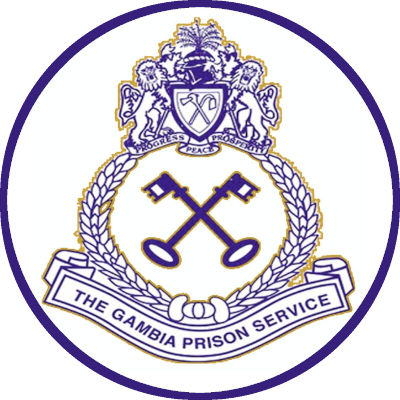Online guidelines
Guidelines for The Gambia Prison Service
The Gambia Prison Services operate under structured guidelines designed to ensure the safety, security, and welfare of both inmates and staff. These guidelines address various aspects of prison management, from inmate treatment to staff conduct, in line with international standards and best practices.
1. Inmate Rights and Treatment
- Basic Human Rights: Inmates must be treated with dignity and respect. They have the right to adequate food, shelter, healthcare, and protection from abuse.
- Prohibition of Torture and Inhumane Treatment: The prison service must ensure that no inmate is subjected to torture or degrading treatment.
- Legal Representation: Inmates should have access to legal assistance and the right to fair legal processes.
- Visitation Rights: Inmates are allowed regular visits from family, legal representatives, and religious or community leaders, under controlled conditions to ensure security.
2. Security and Surveillance
- Facility Security: Guidelines outline strict measures to maintain security within prison premises to prevent escapes and ensure order.
- Inmate Monitoring: Regular monitoring and searches of inmates are necessary to maintain control and prevent illegal activities.
- Contraband Control: Specific protocols are in place to prevent the smuggling of prohibited items (weapons, drugs, etc.) into prison facilities.
- Emergency Procedures: Detailed procedures for handling emergencies such as riots, fires, or medical crises to ensure the safety of inmates and staff.
3. Health and Hygiene
- Medical Care: Inmates must have access to necessary medical care, including for chronic conditions and mental health services.
- Sanitation and Cleanliness: Prisons must ensure that all facilities are clean and sanitary, with proper waste disposal systems and personal hygiene products available to inmates.
- Infectious Disease Control: Protocols are in place to manage outbreaks of infectious diseases, such as isolation procedures and medical treatment.
4. Rehabilitation and Education Programs
- Rehabilitation Services: The prison service offers programs such as vocational training, education, and rehabilitation aimed at reducing recidivism.
- Psychosocial Support: Counseling services are provided to help inmates with mental health issues or substance abuse problems.
- Skills Development: Training programs in agriculture, carpentry, and other vocational skills are available to equip inmates with the skills needed for employment upon release.
5. Disciplinary Procedures
- Inmate Discipline: Disciplinary measures are outlined to deal with misconduct, ensuring they align with human rights standards. Solitary confinement or privilege restrictions may be applied in extreme cases.
- Right to Appeal: Inmates have the right to appeal disciplinary actions taken against them to ensure fairness in the process.
6. Staff Conduct and Ethics
- Code of Conduct: All prison staff must adhere to a code of ethics that prohibits abuse, corruption, and the mistreatment of inmates.
- Training: Regular training is required for prison staff to stay updated on human rights, security measures, and emergency response.
- Oversight: External audits and oversight mechanisms ensure that prison operations comply with both national and international standards.
7. Admission and Classification
- Inmate Admission: Clear procedures guide the intake of inmates, including their classification based on risk levels and the nature of their crimes.
- Record Keeping: Accurate documentation of inmate information, such as personal data, medical records, and sentencing details, is essential for proper management.
8. International and Regional Human Rights Standards
- Human Rights Compliance: The Gambia Prison Service follows international standards such as the United Nations Standard Minimum Rules for the Treatment of Prisoners (Nelson Mandela Rules) and the African Charter on Human and Peoples' Rights.
9. Gender and Vulnerability Considerations
- Female Inmates: Specific guidelines ensure the fair treatment of women in prisons, with special provisions for pregnant inmates and mothers.
- Juvenile Inmates: Juveniles are treated with a focus on rehabilitation rather than punishment, recognizing their unique needs.
- Vulnerable Groups: Special attention is given to elderly inmates, inmates with disabilities, and those with mental health conditions to ensure their needs are adequately met.

